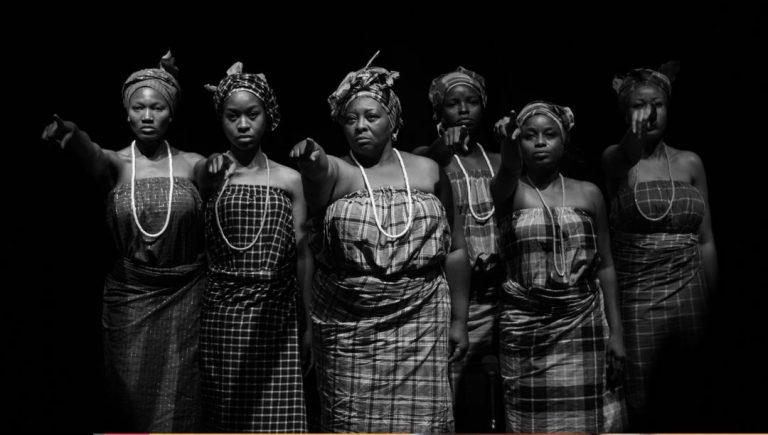
“August meeting is an annual congress held by the Igbo women in August. It is a massive homecoming whereby Igbo women in the diaspora and the cities travel back to their matrimonial villages to meet with their local counterparts to discuss matters about community development, conflict management, human development, and other socio-economic and cultural initiatives. The meeting is a three-day ritual, and it is divided into three parts, the first is held at the village level, the second within the community, and the third is held in churches where thanksgivings are held to mark the end of the meeting” – Wikipedia
Growing up in an Igbo home, one of the things we looked forward to was village meetings, which parents had to attend at least once a month. It afforded us relaxing Sundays free of our bickering parents. With time, we noticed that the women’s wing of the meeting was a lot more serious than the menfolk — they had uniforms which were diligently followed, fines for latecomers and absentees, and most important to us, post-meeting debates that usually kept my mother busy on the phone. But all these monthly meetings could not compare to the August meeting which held once a year. It was a time when select members of the branches abroad travelled home to make decisions with the women in the village on issues concerning the growth of the women’s community. (Source: from the Guardian)
Igbos have practiced democracy for centuries. I can say that because kingships and thrones are rarely inherited. In Ovim, Abia State, the Eze (the king) is not inherited and that means it can move to any family, based on the decisions of the elders and councils.
Igbos empowered women well before the Western world picked the memo. Nneka – “mother is supreme”- is more than a word in the Igbo Nation. In Ovim, the Ojengwa women are like police officers in enforcing the ordinance of the local community. They can excommunicate and punish by seizing and confiscating assets as punishment.
Register for Tekedia Mini-MBA edition 19 (Feb 9 – May 2, 2026): big discounts for early bird.
Tekedia AI in Business Masterclass opens registrations.
Join Tekedia Capital Syndicate and co-invest in great global startups.
Register for Tekedia AI Lab: From Technical Design to Deployment (next edition begins Jan 24 2026).
Umu-ada [daughters, usually married, of a clan] have enormous influence in their fatherlands. When they visit, everyone takes notice. That Uwu-ada was captured well when Chinua Achebe in Things Fall Fall, wrote: “The following day, Uchendu gathers together his entire family, including Okonkwo. He points out that one of the most common names they give is Nneka, meaning “Mother is Supreme”—a man belongs to his fatherland and stays there when life is good, but he seeks refuge in his motherland when life is bitter and harsh.”
I can go on. The issue of gender equity built on the Western thesis is not the whole story. Most African cultures enthroned women even though men are usually more visible. In short, colonialism weakened the positions of women in Igbo Nation and other African societies as the Europeans exclusively recruited men who imposed many things through district officers. In the Aba Women riots of the late 1920s, women pushed back to the British because the new tax was affecting them more, atypical of the local ordinance.. Yes, unlike in the old culture, they were not being consulted and carried along.
When a young boy arrives at his mother’s birthplace, he automatically assumes rights over most. If you check, as elders break kola nuts and drink palm wine, they first ask “do we have nwaada here?” If there happens to be nwaada, they will acknowledge him, and once after taking the palm wine, they will give him, over the sons of the soil. The idea is this: no matter what brought you to your mother’s birthplace, you are welcome! We will feed you before we eat. You are protected from any harm.
As mothers, wives, daughters, etc return to Igbo Nation for the August Meeting, I want to wish everyone safe journeys. Deliberate in peace and continue to improve your lands. IJE OMA.
---
Connect via my
LinkedIn |
Facebook |
X |
TikTok |
Instagram |
YouTube


